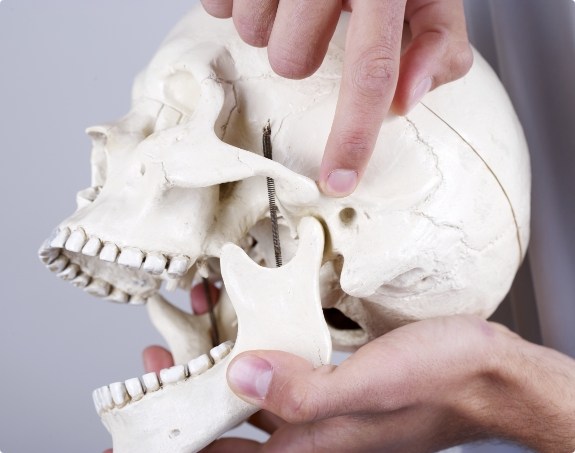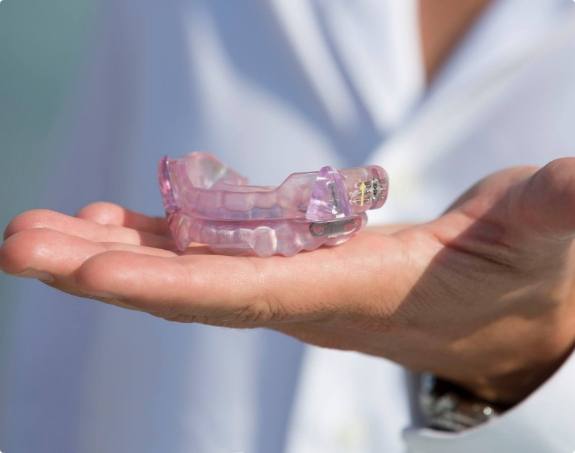TMJ Treatment – Morgan Hill, CA
Relieving Chronic Jaw Pain
The joints just under your ears, which connect your jaw to the base of your skull, are called your temporomandibular joints (TMJs). When these joints become stressed or injured, it can lead to TMJ disorder, or TMD. You may have TMD if you suffer from frequent headaches, migraines, lockjaw, popping or clicking when moving the jaw, or chronic pain in your ears, neck, or shoulders. Fortunately, with the help of Dr. Hong and our Timeless Smiles Morgan Hill team, you can find relief from your TMJ-related discomfort. Please call us to learn about your options for TMJ Treatment in Morgan Hill, CA.
Why Choose Timeless Smiles Morgan Hill for TMJ Treatment?
- Highly Skilled, Kois-Trained Dentist
- Mess-Free Digital Impression System
- Relaxing Dental Office with Comfort Amenities Provided
Diagnosis & Treatment

Dr. Hong will actually examine your jaw joints as part of your routine dental checkups to determine whether you have any signs of TMD. The condition can develop for a variety of reasons, such as bruxism (nighttime teeth grinding), anxiety, an injury, arthritis, or a misaligned bite. The exact cause of your TMD, as well as the stage it has reached, will impact which method of treatment Dr. Hong recommends.
Equilibration / Occlusal Adjustments

When the TMJs are unable to rest in their natural positions, the jaw muscles will be subject to tension that eventually leads to pain. Oftentimes, the TMJs can’t reach their normal positions because the upper and lower teeth don’t come together correctly. To solve this problem, Dr. Hong will have to make small changes in a few teeth. This is known as occlusal adjustments, or equilibration, and it may involve reshaping a small number of specific teeth or restorations so that both arches can meet in harmony and relieve stress from the jaw joints.
Occlusal Splints

An occlusal splint is an oral appliance designed to be worn over the teeth at night. It alleviates stress from the TMJs by gently shifting the lower jaw into its natural resting position. As an added benefit, the splint doubles as a nightguard, shielding the teeth from the grinding and clenching that tend to accompany TMD. The majority of patients who wear their splints every night for several months end up finding permanent relief from their TMD symptoms.
I Need a Checkup & Cleaning I Need a Dentist for My Child I am Concerned About Bleeding Gums I Have a Cavity or Broken Tooth I am Missing One or More Teeth I Want to Enhance My Smile I Want a Straighter Smile I am Scared of the Dentist I am in Pain & Need Help I Need My Wisdom Teeth Removed View Our Services
